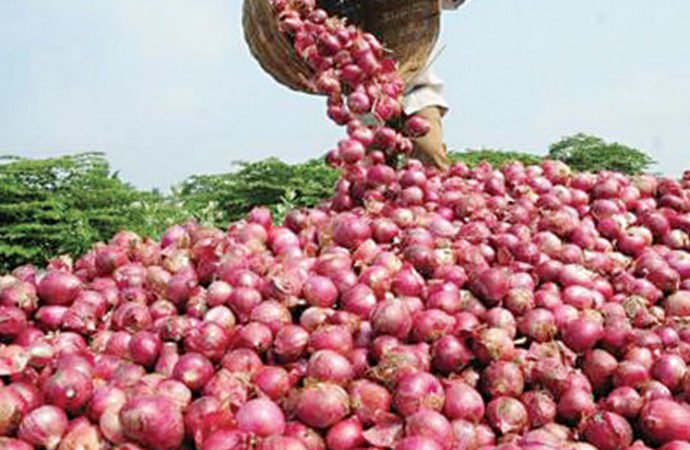
The government should give importance to the agriculture sector, social safety net programmes, and job creation in the upcoming national budget in order to ensure food security and reduce the Covid-induced economic shock on the country’s new poor, according to experts.
Besides, the repeated heatwaves and pest damage hampered agriculture throughout the past year while the two nationwide lockdowns also had an impact on the market, particularly the poultry and dairy sectors.
 For all latest news, follow The Daily Star’s Google News channel.
For all latest news, follow The Daily Star’s Google News channel.
This made the food supply chain volatile and had adverse effects on retail.
The US Department of Agriculture said that boro paddy cultivation may decline by 1.5 per cent this session due to the recent heatwave and pest attacks in Bangladesh.
As a result, it may be difficult for the country to reach its target to produce 2.05 crore tonnes of the crop this season.
In such a situation, a decline in yield will likely fuel speculation in the rice market and lead to higher prices.
This will erode the purchasing power of low income and poor people, many of whom have been hit hard by income losses.
Analysts say the government could reduce much of the food security risk of poor people by distributing grains at subsidised rates among poor people.
But to do so, it needs to increase the stock of food grains in public warehouses, which hit 13-year low of 4.62 lakh tonnes as of April 20.
Besides, the return of a major portion of 2.45 crore new poor, who lost their jobs amid the pandemic, to their villages will deepen rural poverty in the context of limited access to food and supplies, the experts said.
Mohammad Jahangir Alam, a professor of the department of agribusiness and marketing at Bangladesh Agricultural University (BAU), said the government should take some timely and effective steps to strengthen its financial support in the budget to ensure food security.
“We don’t know when the pandemic will end. There will be more instability in the international food market. We need to increase domestic production, so that there will be no threat to the country’s food security,” he said.
So, urgent steps should be taken to increase the amount of subsidy, give stimulus packages at low-interest rates and the financing process should be easier, Alam added.
He went on to say that most agricultural workers usually become unemployed after the harvesting season and so, the number of such seasonally unemployed people will increase after the inclusion of jobless returnees in agriculture.
“If they can be made more productive by keeping them in agriculture through creating agro-based employment, the total productivity in agriculture will increase,” Alam said.
Prof Abdul Bayes, former director of the Research and Evaluation Division of Brac, said this budget should be a risk mitigation budget to save people’s lives and priority should be given to agriculture.
“Importance will also have to be given to allocations in the budget for attaining self-sufficiency in all agricultural products, not only in rice,” added Bayes, who co-authored the book ‘Rural Transformation: Insights from Bangladesh’ with Mahabub Hossain.
Saying that the return of the urban poor to villages will have an impact on the agriculture labour market, Bayes said focus should also be on creating employment opportunities in the agriculture sector to absorb the surplus people.
Otherwise, if the pandemic prolongs, the impact will be there for the long-term, said Bayes, also an economics teacher at East West University.
Planning Commission Member Dr Shamsul Alam said the government is giving huge subsidies in agriculture since it takes top priority alongside health and education in the budget.
About the supply chain and agro-product markets, BAU’s Alam said the government is trying its level best to keep the movement of agriculture goods uninterrupted and keep the market running during the pandemic.
Responding to a recent question about the size of the next budget, Agriculture Minister Mohammad Abdur Razzaque said the present government is giving the highest priority to agriculture.
“Agriculture production has increased as we have taken many steps and given different subsidies, incentives packages to the farmers,” he added.
Without giving a specific outline about the budget, Razzaque said every year, Tk 10,000 crore subsidies are given on fertilizer and other farming materials while a project involving Tk 3,000 crore for agriculture machinery is underway, where 50 to 70 per cent subsidies are being given to farmers.
“Those facilities will also remain in the coming budget,” Razzaque said.
The agriculture minister also said that in many cases, these projects are cancelled if there is a revenue deficit.
However, he assured that no such initiative in the agriculture and health sectors will be cancelled in the next fiscal year.
Responding to another query on whether there will be an allocation for the new poor who returned to agriculture, Razzaque said there will be no separate allocation for them but they will be given priority in providing subsidies and incentives.
In the current fiscal year, the government has allocated Tk 18,630 crore for the Ministry of Agriculture, and Ministry of Fisheries and Livestock, which is around 3.5 per cent of the total budget.
In fiscal 2019-20, the allocation for the two ministries was Tk 15,484 crore.
Of the total allocation for this sector in the current fiscal, Tk 9, 500 crore has been allocated for subsidies on fertilizer and other agricultural incentives.
BAU Professor Alam further said only 76 per cent of the allocation for the subsidies and incentives has been disbursed in the current fiscal so far.
According to a survey of the Power and Participation Research Centre (PPRC) and Brac Institute of Governance and Development (BIGD), the pandemic pushed 2.45 crore people, or 14.75 per cent of the population, into poverty in one year.
A significant share of the new poor is likely to work in agriculture after returning to their villages, it said, adding that agriculture has been critical to economic recovery during the Covid crisis.
The latest World Bank Group projections suggest that the Covid-19 pandemic and associated economic crisis could push between 71 and 100 million people into extreme poverty across the world.
Rural communities are also facing critical challenges by integrating the massive influxes amid limited access to food and supplies as a significant share of the new poor is likely to work in agriculture (56.6 per cent of all employed), according to international experts.










